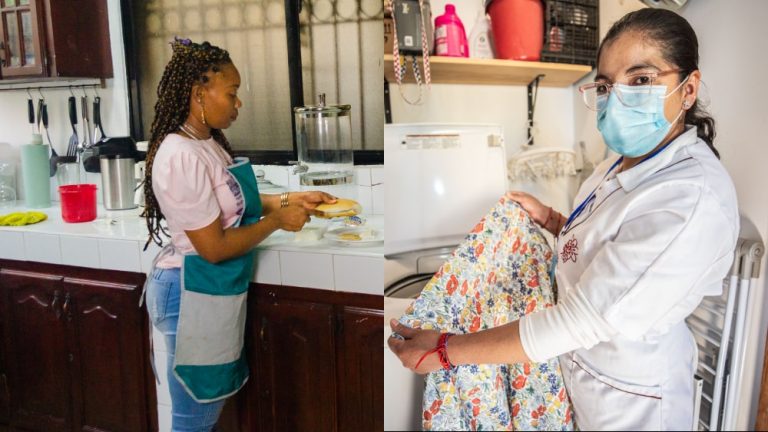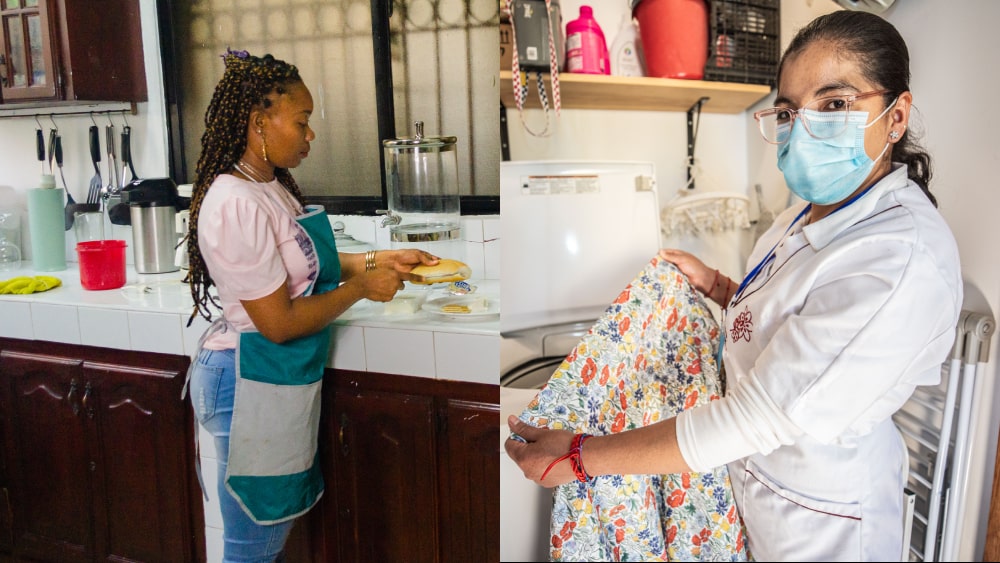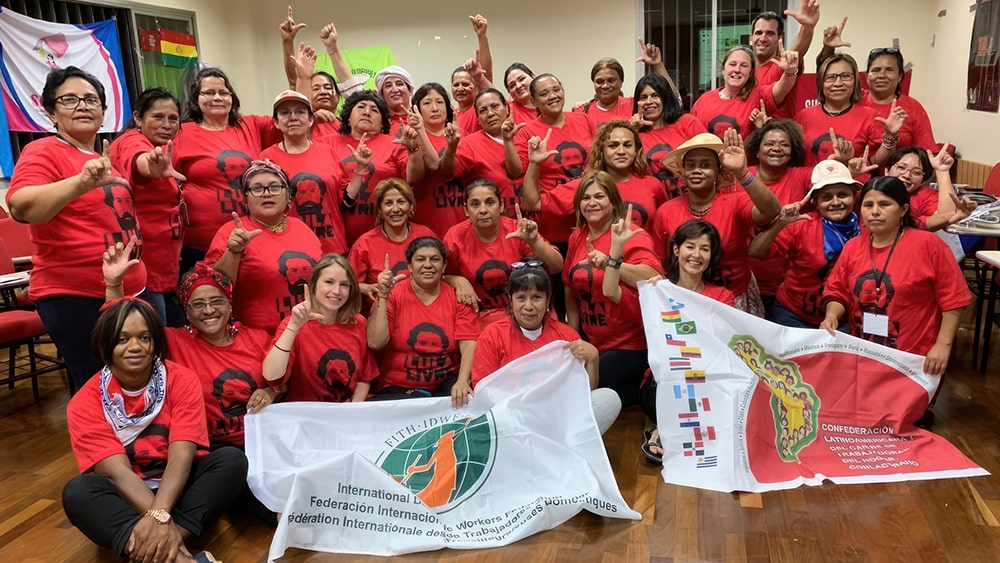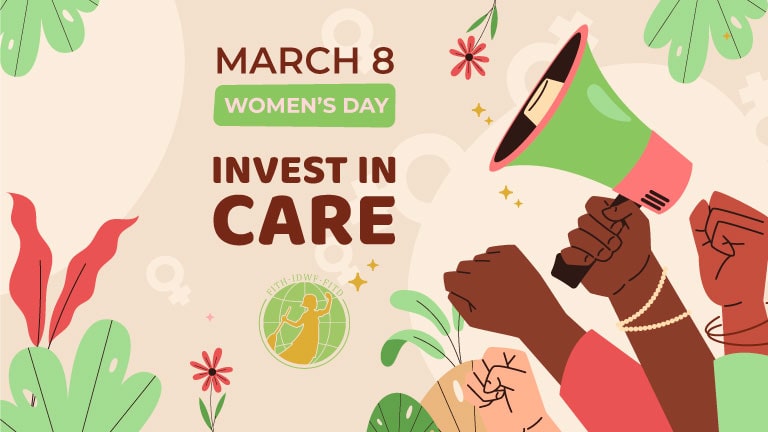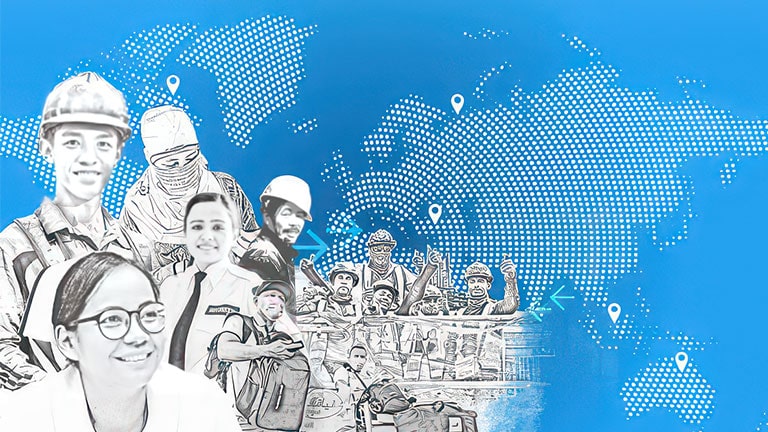From the International Domestic Workers Federation (IDWF), we condemn the recent acts of violence and abuse committed against a young domestic worker in Peru. We demand that the authorities investigate and bring justice, and we express our support and solidarity to the victim, her family, and our affiliates committed to this and other cases of rights violations against domestic workers.
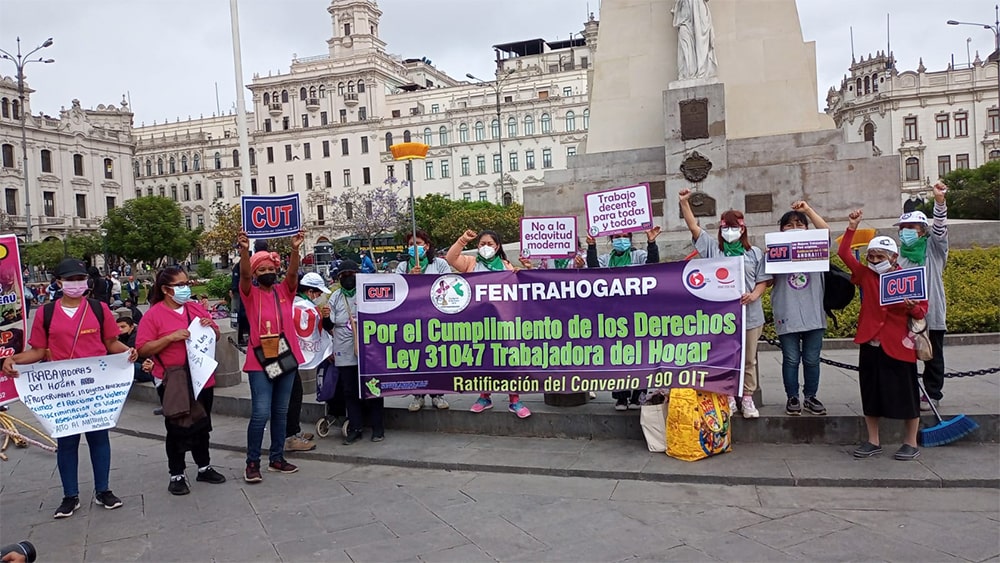
On May 11, the National Police of Peru (PNP) rescued a 19-year-old domestic worker as she tried to jump from the third floor of a residence in the exclusive Miraflores Country Club neighborhood in Piura, to escape an attempted sexual assault. The young woman, who had been working in that household for only 16 days, reported having been sexually assaulted on multiple occasions by a member of the employing family.
“These kinds of harassment incidents have always occurred in employers’ homes, but many do not report them for fear of the employer or being stigmatized by their partners and families. They feel shame and fear retaliation. What happened to this young domestic worker cannot go unpunished. Convention 190 must be implemented immediately in the country. Domestic workers are the ones who keep the economy moving and we have rights. We demand protection now!” says María de los Ángeles Ochoa, from the National Domestic Workers Federation of Peru (FENTRAHOGARP).
In 2018, over 1,686 reports of physical and psychological assaults against domestic workers were registered, according to the Ministry of Women. Additionally, according to the study “Behind the Apron,” conducted by the same government body in 2007, 1 in 10 domestic workers had experienced physical violence and 5 had experienced psychological violence in their workplace that year, while 3 in 10 had experienced some form of harassment and/or sexual violence.
The scarcity of statistical data on this issue highlights two major challenges: 1) the need for active monitoring and follow-up on the issue by the State; 2) the need to raise awareness, train, and support domestic workers to report cases of harassment and violence; the lack of information about existing regulations and mechanisms for accessing justice, as well as the fear of reprisals, discredit, and stigmatization, leads domestic workers to remain silent.
For Marcolina Infante, General Secretary of the Domestic Workers Union of the Lima Region (SINTTRAHOL), “there are no statistics on abuse and violence in the world of domestic work because the comrades who are abused generally do not report it out of fear and shame. Employers have economic and psychological power over us. We do not react, we remain paralyzed, and thus the abuses go unpunished and forgotten.”
Sexual harassment is a form of gender-based violence and one of the most frequent manifestations of the unequal power relations between domestic workers and employers. It poses a psychosocial risk that can have serious physical and emotional consequences for the victims, making it a severe occupational health and safety problem in domestic work, but also—and more seriously—a violation of domestic workers’ fundamental labor and human rights.
“In Peru, it is historically known that employers’ sons start their sexual life with domestic workers. I experienced it firsthand when I was very young: my employer’s son and my employer abused me. After that, I always sought jobs in houses where there were no men. Trauma and fear have accompanied me ever since. I still tremble if someone invades my space,” recounts Marcolina Infante.
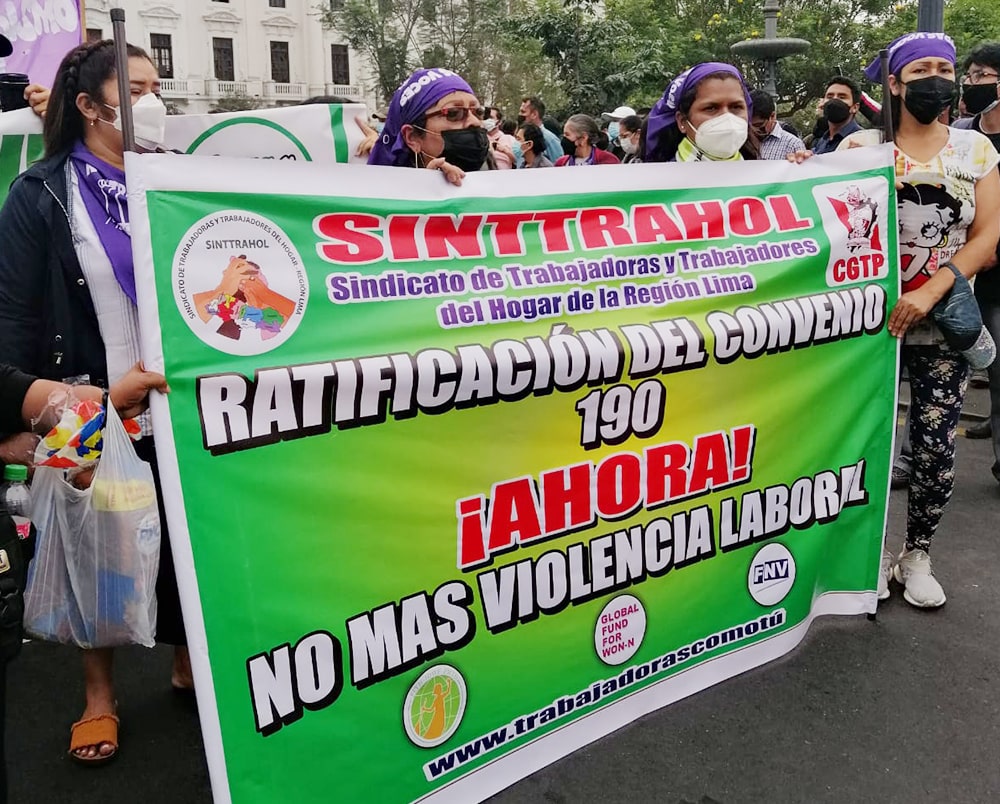
A Vulnerable Sector to Rights Violations
Despite significant advances in recent years in legal protection for domestic workers in Peru, in practice, decent work is still a distant reality. The household survey conducted by the National Institute of Statistics and Informatics (INEI) in 2019 reveals that of the more than 420,000 domestic workers in the country, over 95% of whom are women, almost 90% are employed informally, half earn less than the minimum wage, and almost 40% work more than 48 hours a week.
Additionally, a large portion of the domestic workers workforce in Peru consists of indigenous and Afro-Peruvian women, many of whom are internal migrants. There is also a high percentage of female heads of households living in poverty. The nature of their work, performed in private homes, in isolation, and out of public view, in conditions of enormous power inequality with their employers, further increases the vulnerability of domestic workers to violence and harassment, especially those working under the “live-in” modality.
Thus, domestic workers constitute a sector that, due to the particularities of its members, the specific characteristics of the activity, and the prevailing labor precarity, is disproportionately exposed to discrimination, abuse, sexual harassment, violence, and rights violations. As summarized by SINTTRAHOL’s leader: “Employers ask for references about us before hiring, but we know nothing about the employers when we start working in a house. We are locked in with them, completely exposed and vulnerable. We take care of them, but who takes care of us? In Peru, domestic work is dangerous work.”
From Paper to Practice
Although the hard data and experiences of domestic workers present a disheartening reality, Peru has numerous —and good— legal instruments and initiatives aimed at guaranteeing domestic workers’ right to decent, fair, and safe working conditions, free from all forms of violence and harassment. Let’s review the main ones:
- ILO Convention 189 and its Recommendation No. 201 (on decent work for domestic workers)
- Law No. 31047 (Domestic Workers Law, 2020)
- ILO Convention 190 (on violence and harassment in the world of work).
- Law No. 30364 to prevent, punish, and eradicate violence against women and members of the family.
- Law No. 27942 for the prevention and punishment of sexual harassment.
- Public service “Work Without Harassment,” which provides attention, guidance, psychological, and legal support to victims of sexual harassment in the workplace.
- Aurora Program, which implements a variety of actions to prevent violence, provides attention and protection to victims of violence and sexual abuse, and includes specific guidelines to provide differentiated attention to domestic workers according to their conditions and particular characteristics.
- Various mechanisms for reporting and accessing justice.
The contribution of domestic workers’ organizations in Peru and the IDWF to the design and adoption of the aforementioned regulations and initiatives has been key. Additionally, the IDWF affiliates in Peru (FENTRAHOGARP, SINTTRAHOL, IPROFOTH, and CCTH) have played a central role in accompanying, providing psychological support, and legal assistance to victims of violence and harassment in the workplace, as well as training and raising awareness among their members.
“Thanks to the support of my union and the IDWF, I was able to start talking. After many years of being a victim of abuse and keeping it secret, I dared to tell it in the IDWF´s LUNA program, and then I began to heal. It is important for this young victim to speak out and report. We are here to support her,” says Marcolina Infante.
Time to Take Action
Given the recent assault on a domestic worker and the repeated acts of harassment and violence against other domestic workers in Peru, the IDWF urges the government and the judiciary of this country to:
- Proceed with the urgent investigation of the case (without revictimizing the victim) and appropriately sanction those responsible.
- Ensure fair redress for the victim.
- Provide comprehensive assistance to the victim (psychological support, social protection, free legal advice).
- Strengthen supervision and inspection of paid domestic work.
- Effectively implement national laws and international instruments on the prevention, eradication, and punishment of sexual harassment and gender-based violence.
- Ensure the effective enforcement of national laws and international instruments protecting the labor and human rights of domestic workers.
- Guarantee the representation and participation of domestic workers organizations in the development and implementation of regulations, public policies, and initiatives aimed at preventing and eradicating violence and harassment in the domestic work sector, as well as ensuring decent working and living conditions for domestic workers.
- Accomplish the obligation to report to the ILO on the implementation of the conventions ratified by Peru.
As an international federation committed to recognizing and respecting the labor and human rights of domestic workers worldwide, the IDWF makes a strong call to the Peruvian Government to act NOW: There is no excuse for violence and harassment against Domestic Workers!
#CareForThoseWhoCareForYou

